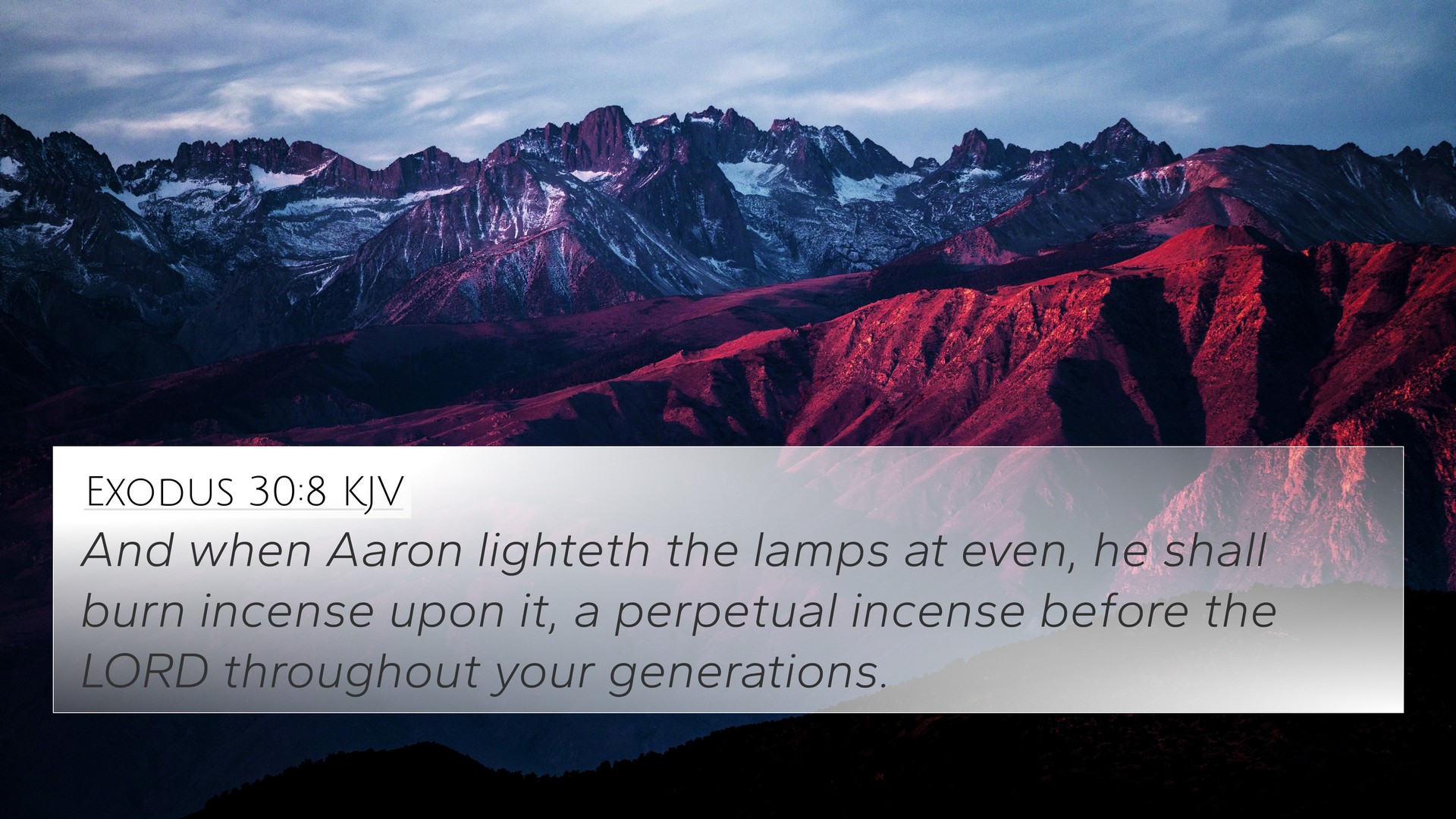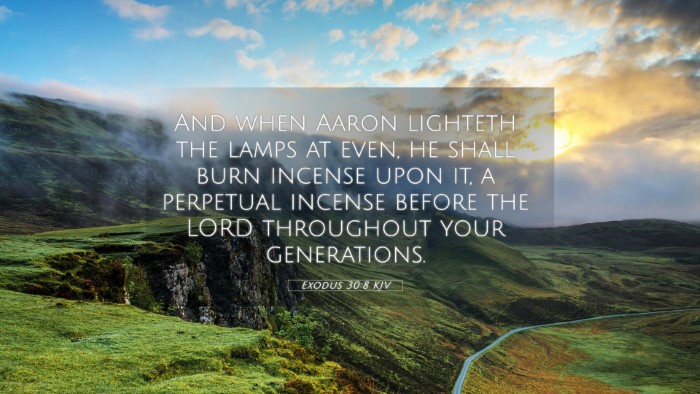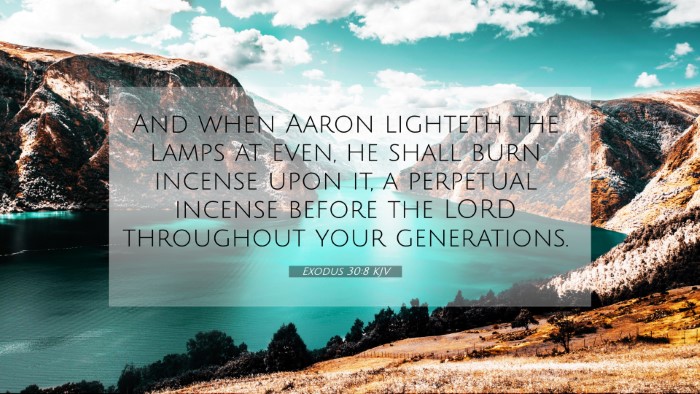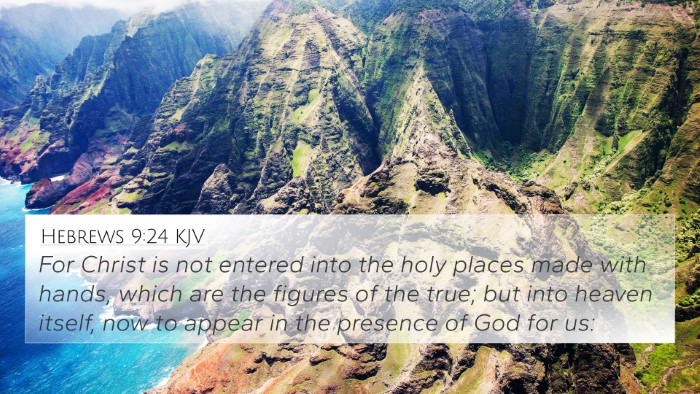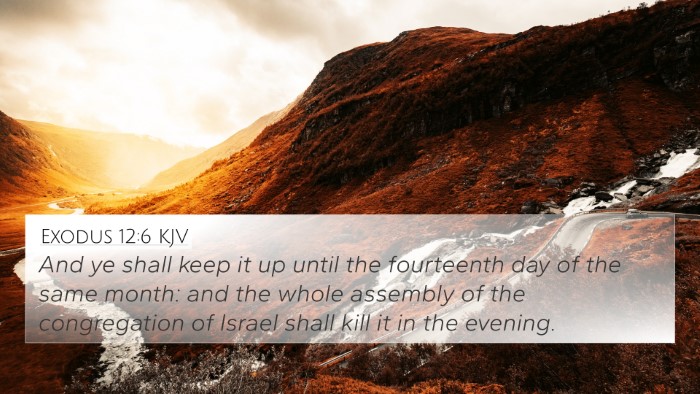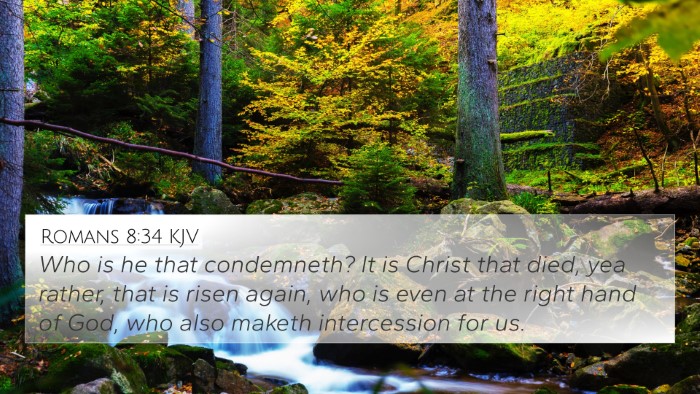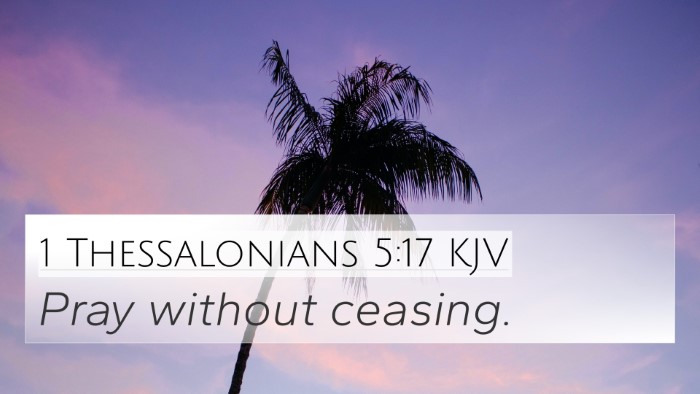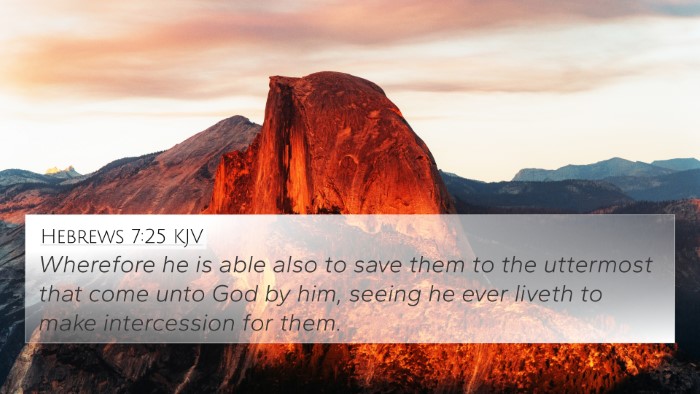Understanding Exodus 30:8
Exodus 30:8 states: "And when Aaron lighteth the lamps at even, he shall burn incense upon it: a perpetual incense before the Lord throughout your generations." This verse highlights the importance of incense as a symbol of prayer and worship, and it emphasizes the ritual duties of Aaron, the high priest.
Commentary Insights
- Matthew Henry: He notes that the burning of incense was a significant part of the priestly duties, indicating a continuous communication between God and His people. The perpetual nature of the incense suggests that God desires ongoing worship and relationship with His followers.
- Albert Barnes: Barnes points out that incense represents prayers ascending to God. The use of the phrase "throughout your generations" signifies that this practice is not just a one-time event, but a lasting covenant between God and Israel. It acknowledges the holiness of God and the necessity of mediation by the priesthood.
- Adam Clarke: Clarke elaborates on the rituals surrounding the incense, emphasizing its role in the daily life of the Israelites. The act of lighting lamps and burning incense symbolizes the illumination of God’s presence and the believers’ need for spiritual guidance.
Thematic Connections
This verse connects deeply with themes of worship, intercession, and the holy relationship between God and His people. It illustrates how worship is integral to the faith community and highlights the role of the priesthood as the mediator of God's presence.
Cross-References for Exodus 30:8
- Leviticus 16:12-13: Discusses the burning of incense and the significance of entering the holy place.
- Revelation 5:8: Incense is represented as the prayers of the saints, affirming the connection between prayer and worship.
- Psalms 141:2: "Let my prayer be set before thee as incense," showing the metaphorical link between incense and prayer.
- Hebrews 9:4: Mentions the golden censer, highlighting the continuity of worship practices from the Old Testament to the New Testament.
- Numbers 16:46: Aaron's role in interceding for the people with incense emphasizes the priestly duty of mediation.
- Matthew 2:11: The Magi presented gifts of gold, frankincense, and myrrh to Jesus, symbolizing worship and recognition of His divinity.
- 1 Thessalonians 5:17: Encourages continual prayer, paralleling the idea of perpetual incense before the Lord.
Inter-Biblical Dialogue
Through linking Bible scriptures, Exodus 30:8 finds its resonance not only in the laws and practices of worship in the Old Testament but also in the New Testament teachings about prayer and our relationship with God. This creates a rich tapestry of understanding about how worship has evolved yet remains foundational.
Applying the Insights
For those using this verse in a study or sermon preparation, consider how these themes of worship and prayer continue to impact your community. Explore tools for Bible cross-referencing to enhance your understanding and bring insight into your teachings.
Conclusion
In summary, Exodus 30:8 serves as a significant reminder of the intertwining of prayer and worship throughout Biblical history. The connections between Bible verses, such as the cross-references provided, underscore the importance of understanding the Bible as a cohesive narrative about God's relationship with humanity.
